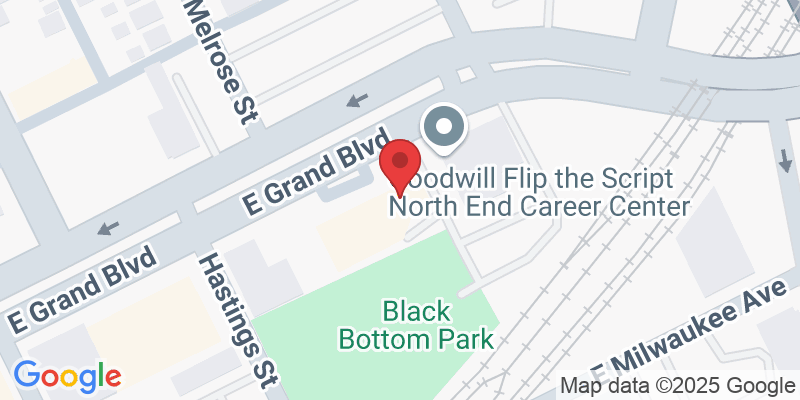
We have the tools and resources to help you start or
scale your business. Join our thriving community and
stay connected with us.

We have the tools and resources to
help you start or scale your business.
Join our thriving community and stay
connectedwith us.


Being an entrepreneur is hard, and having the proper resources can be frustrating. You do not have to go at it alone. We have courses and a community to help educate you (Real Life XP), a full CRM system to help you automate your processes (The Real Life Business Builder), and coaching to help you implement what you've learned.


Being an entrepreneur is hard, and having
the proper resources can be frustrating.
You do not have to go at it alone. We have courses and a community to help educate
you (Real Life XP), a full CRM system to help
you automate your processes (The Real
Life Business Builder), and coaching to help
you implement what you've learned.

We understand that minority entrepreneurs have different needs and we cater to those.
Real Life XP
Our flagship entrepreneur accelration course
covers the entreprenur mindset, developing
systems and processes for your business,
building credit and acquiring funding for your
business and much more.


Coaching and Consulting
The right guidance can help entrepreneurs
overcome obstacles or avoid them all together.
We offer one-on-one and group coaching
to guide entrepreneurs through the maze of
business building.
The Real Life Business Builder Community
Our free community for entrepreneurs offers
courses, eBooks, group coaching,
and other resources for the growth and
development of entrepreneurs.


The Real Life Business Builder
The Real Life Business Builder is a full CRM, marketing, and automation system that we help set up for our clients to ensure implementation. Our lowest plan is just $80 a month and includes a free website and basic automation set up.
Tax Preparation, Training,
and Software
Small businesses need tax preparers who
understand small businesses. We now offer tax preparation services, tax preparation training,
and tax software to ensure entrepreneurs are able to plan for taxes and receive maximum returns.


Business Credit and
Business Funding
Without capital, your business will not be able to grow. We help clients start from nothing and build business credit in less than 90 days. We also ensure that you fit the criteria to apply for different business funding options.
The Ultimate Business
Builder Blueprint
Let us help you create an irresistible offer,
a professional funnel to generate leads,
marketing and ads to increase your reach,
CRM software to manage leads, and coaching
to put it all together.


We understand that minority
entrepreneurs have different needs
and we cater to those.

Real Life XP
Our flagship entrepreneur accelration course covers the entreprenur mindset, developing systems and processes
for your business, building credit and acquiring funding for your business and much more.

Coaching and Consulting
The right guidance can help entrepreneurs
overcome obstacles or avoid them all together. We offer one-on-one and group coaching to guide entrepreneurs through the maze of business building.

The Real Life Business
Builder Community
Our free community for entrepreneurs offers courses, eBooks, group coaching,
and other resources for the growth and
development of entrepreneurs.

The Real Life Business Builder
The Real Life Business Builder is a full CRM, marketing, and automation system that we help set up for our clients to ensure implementation. Our lowest plan is just $80 a month and includes a free website and basic automation set up.

Tax Preparation, Training,
and Software
Small businesses need tax preparers who
understand small businesses. We now offer tax preparation services, tax preparation training,
and tax software to ensure entrepreneurs are able to plan for taxes and receive maximum returns.

Business Credit and
Business Funding
Without capital, your business will not be able to grow. We help clients start from nothing and build business credit in less than 90 days. We also ensure that you fit the criteria to apply for different business funding options.

The Ultimate Business
Builder Blueprint
Let us help you create an irresistible offer,
a professional funnel to generate leads,
marketing and ads to increase your reach,
CRM software to manage leads, and coaching
to put it all together.



How to Develop a Millionaire Mindset Before You Make a Million
How to Develop a Millionaire Mindset Before You Make a Million
Most people have it backwards. They believe that once they accumulate wealth, they'll naturally develop the mindset of a wealthy person. But the reality is quite the opposite: the mindset typically comes first, with financial success following as a natural consequence.
As Bankrate puts it, "When it comes to becoming a millionaire, your mindset is an important factor – maybe the key factor – in getting you there." According to their research, many millionaires especially 401(k) millionaires built their wealth over decades, not overnight, by adopting specific thinking patterns long before they had significant money in the bank.
In this article, we'll explore how to cultivate the psychological foundations of wealth before you have the bank account to match. By developing these mental habits now, you'll position yourself to join the 79% of millionaires who are self-made rather than born into wealth.
The Psychology Behind Wealth Creation
True wealth begins in the mind. Research shows that millionaires think differently about money, time, risk, and opportunity than the average person. As Peter Boolkah notes, "People with the millionaire mindset understand that to be prosperous and affluent, they must first perceive themselves as capable of achieving those goals."
This doesn't mean engaging in delusional positive thinking. Instead, it's about adopting specific mental frameworks that guide your decisions toward wealth-building actions. Let's explore the key components of this mindset.
1. Embrace an Abundance Mentality
One of the most fundamental shifts in developing a millionaire mindset is moving from scarcity thinking to abundance thinking.
Scarcity vs. Abundance Thinking
Scarcity thinking views the world as having limited resources, opportunities, and possibilities. People with this mentality believe:
Success is a zero-sum game (someone must lose for them to win)
There's never enough to go around
They must hoard what they have
Opportunities are rare and fleeting
Abundance thinking sees the world as full of opportunities, resources, and potential. Those with this mentality believe:
There are endless opportunities for creation and growth
Win-win scenarios are not just possible but preferable
Resources can be created and multiplied, not just divided
Opportunities are constantly emerging
How to Develop Abundance Thinking
Practice gratitude daily: Research from BetterUp suggests that starting each day by acknowledging what you already have creates a foundation for abundance thinking. When you recognize the resources and opportunities already in your life, you're more likely to spot new ones.
Change your language: Notice when you use scarcity-based phrases like "I can't afford that" or "There's not enough time." Replace them with abundance-oriented questions like "How can I afford that?" or "How can I make time for what matters most?"
Celebrate others' success: Instead of feeling jealous when others succeed, use their achievements as proof that success is possible and learn from their journey.
2. Develop Long-Term Thinking
According to New Trader U, "Perhaps the most fundamental wealth-building habit is the ability to prioritize future rewards over immediate satisfaction." This ability to delay gratification is strongly correlated with financial success.
The famous Stanford marshmallow experiment demonstrated that children who could resist immediate treats for greater rewards later showed better life outcomes decades later, including higher net worth and financial stability.
How to Strengthen Your Long-Term Thinking
Practice visualization: Spend time regularly envisioning your future self. Research from UCLA found that people who regularly visualize their future selves make significantly better financial decisions.
Create meaningful goals: Long-term thinking becomes easier when you have compelling reasons to sacrifice today for tomorrow. Identify goals that genuinely excite you.
Make delayed gratification a game: Challenge yourself to postpone purchases for 48 hours. This creates a habit of thoughtful spending rather than impulsive buying.
Start small: Build your "delayed gratification muscle" by starting with small decisions before tackling bigger ones.
3. Redefine Risk and Failure
Millionaires have a fundamentally different relationship with risk and failure than most people. They don't avoid risk they calculate it. They don't fear failure they extract lessons from it.
According to a 2025 Global Entrepreneurship Monitor report, 49% of survey respondents said they won't start a business out of fear of failing up from 44% in 2019. This fear keeps many people from taking the necessary steps toward wealth creation.
How to Transform Your Relationship with Risk and Failure
Reframe failure as education: As Thomas Edison famously said about his numerous attempts to invent the light bulb, "I have not failed. I've just found 10,000 ways that won't work." View setbacks as valuable data rather than personal defeats.
Practice calculated risk-taking: Start with small, low-consequence risks to build your comfort with uncertainty. Gradually increase the stakes as your risk assessment skills improve.
Study successful failures: Read about entrepreneurs like Jeff Bezos, whose early mistakes at Amazon (like losing $50 million on unsold toys) didn't prevent him from building one of the world's most valuable companies.
Create risk mitigation strategies: Learn to distinguish between foolish gambles and calculated risks by developing contingency plans for your ventures.
4. Shift from Consumer to Investor Mentality
A defining characteristic of the millionaire mindset is seeing yourself primarily as an investor rather than a consumer. This doesn't mean never enjoying purchases it means prioritizing assets that grow in value over items that depreciate.
Bankrate emphasizes that "living below their means always comes first, giving [affluent people] money to invest and grow their wealth over time." This approach creates a positive cycle where wealth becomes easier to accumulate each year as investments continue to grow.
How to Develop an Investor Mentality
Track value creation vs. consumption: For one month, categorize every expenditure as either creating future value (investments, education, business expenses) or consumption. Aim to gradually increase the percentage going toward value creation.
Redefine essentials: Challenge conventional assumptions about what you "need" versus what you "want." This doesn't mean living like a monk but being intentional about spending.
Start investing with any amount: As James Royal from Bankrate points out, "Today anyone with a few dollars can become an investor" thanks to fractional shares and low-cost platforms. The mindset shift begins when you start thinking of yourself as an investor regardless of how much you have.
Evaluate purchases as an investor would: Before making significant purchases, ask: "Will this asset appreciate, depreciate, or generate income?" This doesn't mean never buying depreciating assets, but being conscious of the financial impact.
5. Cultivate Income-Producing Habits
While most financial advice focuses on saving, millionaires place equal or greater emphasis on increasing income. According to Smallbiztechnology.com, "Most financial advice for the middle class revolves around cutting expenses... While being smart with money is important, there's only so much you can save. Wealthy people don't just focus on cutting costs they focus on increasing income."
A key part of the millionaire mindset is constantly seeking ways to create new income streams rather than solely relying on a paycheck.
How to Develop Income-Producing Habits
Adopt the "income stack" approach: According to 2025 research from Elevation Capital founder Michael Reynolds, "The average millionaire in 2025 has 4-7 income streams, but it's not about quantity—it's about strategic synergy between these revenue channels." Look for complementary income sources that leverage the same skills or resources.
Invest in your earning ability: Continually upgrade your skills, knowledge, and network to increase your market value. This is often the highest-return investment you can make.
Identify scalable opportunities: Look for ways to earn that aren't directly tied to your time. This might include creating digital products, building systems that work without your direct involvement, or investing in assets that appreciate while providing cash flow.
Practice value-thinking: Regularly ask, "How can I provide more value to more people?" The answer often leads to increased income opportunities.
6. Build a Wealth Network
Your social environment profoundly influences your financial trajectory. As motivational speaker Jim Rohn famously said, "You are the average of the five people you spend the most time with."
Millionaires intentionally build networks that support their wealth-building journey. According to Smallbiztechnology.com, "We don't just adopt habits from the people we spend time with we adopt their expectations. Wealthy individuals surround themselves with people who challenge them to think bigger, take smarter risks, and see opportunities where others see obstacles."
How to Develop Your Wealth Network
Audit your current circle: Without judgment, assess how the people closest to you influence your financial beliefs and habits. Do they encourage growth or reinforce limiting beliefs?
Seek mentors and models: Find people who have achieved what you aspire to and learn from them either directly through mentorship or indirectly through books, podcasts, and courses.
Join or create mastermind groups: Regular interaction with like-minded strivers creates accountability and accelerates learning. Napoleon Hill's concept of the "mastermind alliance" emphasizes the power of collaborative thinking.
Give before you receive: Build relationships by offering value first. This creates a foundation of goodwill and reciprocity that strengthens your network over time.
7. Develop Financial Intelligence
Financial education is an ongoing process for those with a millionaire mindset. As Thomas Chen, a wealth psychology expert, notes, "The wealth-building journey resembles tending a garden more than hunting for treasure. Daily attention to your financial ecosystem yields far greater results than occasional frantic activity."
Financial intelligence isn't about memorizing rules but developing frameworks for evaluating opportunities and making sound decisions.
How to Increase Your Financial Intelligence
Read voraciously: According to research cited by entrepreneur John Boitnott, "The most successful people on the planet are also the people most likely to devote an hour a day to reading and learning." Focus on books that teach both technical financial knowledge and wealth psychology.
Track and analyze your finances: You can't improve what you don't measure. Develop systems for tracking your net worth, cash flow, and investment performance.
Learn the language of money: Become conversant in financial terms and concepts. This builds confidence in financial discussions and decisions.
Study both success and failure: Learn from both millionaires' strategies and common financial mistakes. This balanced approach provides a more complete financial education.
8. Embrace Strategic Patience
The millionaire mindset balances ambition with patience. While the goal is significant wealth, those with this mindset understand that sustainable wealth typically takes time.
As financial strategist Jennifer Blake explains, wealth building functions "like water rather than concrete flexible, adaptable, and able to flow into new channels as markets evolve." This adaptability has proven crucial for those who have successfully navigated volatile investments.
How to Develop Strategic Patience
Set milestones, not just end goals: Break down the path to wealth into achievable steps that provide a sense of progress and momentum.
Study the real timelines of success: Look beyond overnight success stories to understand the typical timeline for wealth building. Many millionaires took decades to reach their first million.
Focus on systems, not just goals: Develop daily and weekly routines that move you toward wealth regardless of immediate results. Trust that consistent actions will eventually yield results.
Practice mindfulness: Regular meditation or similar practices can strengthen your ability to remain patient and focused during the inevitable ups and downs of wealth building.
Real-Life Examples: The Mindset Before the Millions
Many of today's wealthiest individuals exhibited the millionaire mindset long before they had significant financial resources. Their stories demonstrate how mindset precedes monetary success:
Jeff Bezos
Before Amazon became a global giant, Bezos displayed classic millionaire thinking. He embraced calculated risk by leaving a secure job at D.E. Shaw, adopted a long-term perspective when he went years without turning a profit, and maintained resilience through early failures (including losing $50 million on unsold inventory). He developed these mental habits before becoming one of the world's richest individuals.
Madam C.J. Walker
Born Sarah Breedlove to former slaves in 1867, Walker grew up in extreme poverty. However, she developed an abundance mentality that allowed her to see opportunity where others saw limitations. When experiencing hair loss, she created her own hair care products for Black women eventually becoming America's first female self-made millionaire. Her mindset of possibility preceded her financial success.
Bhavish Aggarwal
Before founding Ola Cabs and making Forbes' list of India's wealthiest individuals, Aggarwal demonstrated the investor mentality by identifying a scalable opportunity in India's transportation market. His ability to see inefficiencies in existing cab services as an opportunity rather than just a frustration exemplifies the millionaire mindset in action. He has said: "All of us have an entrepreneur in us. Entrepreneurs are not driven by fear; they are driven by the idea to create impact."
Practical Exercises to Develop Your Millionaire Mindset
Now that we've explored the core components of the millionaire mindset, here are practical exercises to help you develop these mental habits:
1. The Wealth Journal
Create a dedicated journal for your wealth-building journey. Use it to:
Record daily gratitude for existing resources and opportunities
Track insights from financial reading and experiences
Document your evolving beliefs about money and success
Note potential income-generating ideas
Commit to writing in this journal for at least 10 minutes daily for 30 days.
2. The Million-Dollar Question Practice
Each morning, ask yourself one of these million-dollar questions:
"What would I do today if I already had $10 million in the bank?"
"What skills am I developing today that will be worth $1 million over my lifetime?"
"What problem could I solve that would provide $1 million in value to others?"
These questions prime your brain to think at the level of the person you're becoming, not just who you currently are.
3. The Opportunity Audit
At the end of each week, conduct an opportunity audit by asking:
What opportunities did I recognize this week?
What opportunities did I act on?
What opportunities did I create for others?
What prevented me from seeing or acting on opportunities?
This practice strengthens your ability to spot and leverage opportunities a crucial skill for wealth creation.
4. The Financial Intelligence Challenge
Challenge yourself to learn one new financial concept or strategy each week. This might involve:
Reading an article about a financial topic you don't fully understand
Watching an educational video about investing or business
Listening to a podcast episode featuring a successful entrepreneur
Having a conversation with someone more financially knowledgeable than you
Track your learning in your wealth journal to reinforce the knowledge.
5. The Wealth Visualization Exercise
Spend 10 minutes each day visualizing not just having wealth, but being the kind of person who creates and maintains wealth. Imagine:
How you make decisions
How you manage your time
How you respond to challenges
How you identify and evaluate opportunities
How you build and nurture relationships
Make the visualization as detailed as possible, engaging all your senses.
Common Obstacles to Developing a Millionaire Mindset
As you work to develop your millionaire mindset, be aware of these common obstacles:
1. Environment and Peer Pressure
Your current social circle may unconsciously discourage wealth-building behaviors. Comments like "That's too risky," "Who do you think you are?" or "You work too much" can undermine your efforts to think differently.
Solution: Gradually expand your social circle to include more growth-minded individuals while limiting time with those who reinforce limiting beliefs.
2. Confirmation Bias
We naturally seek information that confirms our existing beliefs. If you believe wealth is difficult or unlikely, you'll notice evidence supporting this view while overlooking contrary examples.
Solution: Intentionally seek out evidence that challenges your limiting beliefs about wealth. Study successful people from backgrounds similar to yours.
3. Financial Trauma
Past negative experiences with money such as growing up in poverty, experiencing bankruptcy, or being scammed can create unconscious blocks to wealth thinking.
Solution: Work to identify and process these experiences, possibly with the help of a financial therapist or coach. Recognize how past events may be influencing current decisions.
4. The Impostor Syndrome
As you adopt new ways of thinking, you may feel like a fraud as if you're pretending to have a mindset you haven't earned.
Solution: Remember that all millionaires started by adopting the mindset before they had the money. Acting "as if" is not deception but a legitimate strategy for personal transformation.
Conclusion: Mind First, Money Second
Developing a millionaire mindset doesn't guarantee you'll become wealthy, but it dramatically increases your chances. More importantly, it enriches your life immediately by fostering agency, optimism, and strategic thinking.
Remember what Peter Boolkah emphasized: "The millionaire mindset isn't solely focused on making a million dollars... It's about transforming your life by shifting your perspective and making way for the realization of what you've always dreamed."
The journey to financial success begins not with a particular investment or business idea but with a decision to think differently about wealth, opportunity, and your own capabilities. By cultivating these mental habits now, you lay the foundation for the financial future you desire.
Start today your future millionaire self will thank you.

How to Develop a Millionaire Mindset Before You Make a Million
How to Develop a Millionaire Mindset Before You Make a Million
Most people have it backwards. They believe that once they accumulate wealth, they'll naturally develop the mindset of a wealthy person. But the reality is quite the opposite: the mindset typically comes first, with financial success following as a natural consequence.
As Bankrate puts it, "When it comes to becoming a millionaire, your mindset is an important factor – maybe the key factor – in getting you there." According to their research, many millionaires especially 401(k) millionaires built their wealth over decades, not overnight, by adopting specific thinking patterns long before they had significant money in the bank.
In this article, we'll explore how to cultivate the psychological foundations of wealth before you have the bank account to match. By developing these mental habits now, you'll position yourself to join the 79% of millionaires who are self-made rather than born into wealth.
The Psychology Behind Wealth Creation
True wealth begins in the mind. Research shows that millionaires think differently about money, time, risk, and opportunity than the average person. As Peter Boolkah notes, "People with the millionaire mindset understand that to be prosperous and affluent, they must first perceive themselves as capable of achieving those goals."
This doesn't mean engaging in delusional positive thinking. Instead, it's about adopting specific mental frameworks that guide your decisions toward wealth-building actions. Let's explore the key components of this mindset.
1. Embrace an Abundance Mentality
One of the most fundamental shifts in developing a millionaire mindset is moving from scarcity thinking to abundance thinking.
Scarcity vs. Abundance Thinking
Scarcity thinking views the world as having limited resources, opportunities, and possibilities. People with this mentality believe:
Success is a zero-sum game (someone must lose for them to win)
There's never enough to go around
They must hoard what they have
Opportunities are rare and fleeting
Abundance thinking sees the world as full of opportunities, resources, and potential. Those with this mentality believe:
There are endless opportunities for creation and growth
Win-win scenarios are not just possible but preferable
Resources can be created and multiplied, not just divided
Opportunities are constantly emerging
How to Develop Abundance Thinking
Practice gratitude daily: Research from BetterUp suggests that starting each day by acknowledging what you already have creates a foundation for abundance thinking. When you recognize the resources and opportunities already in your life, you're more likely to spot new ones.
Change your language: Notice when you use scarcity-based phrases like "I can't afford that" or "There's not enough time." Replace them with abundance-oriented questions like "How can I afford that?" or "How can I make time for what matters most?"
Celebrate others' success: Instead of feeling jealous when others succeed, use their achievements as proof that success is possible and learn from their journey.
2. Develop Long-Term Thinking
According to New Trader U, "Perhaps the most fundamental wealth-building habit is the ability to prioritize future rewards over immediate satisfaction." This ability to delay gratification is strongly correlated with financial success.
The famous Stanford marshmallow experiment demonstrated that children who could resist immediate treats for greater rewards later showed better life outcomes decades later, including higher net worth and financial stability.
How to Strengthen Your Long-Term Thinking
Practice visualization: Spend time regularly envisioning your future self. Research from UCLA found that people who regularly visualize their future selves make significantly better financial decisions.
Create meaningful goals: Long-term thinking becomes easier when you have compelling reasons to sacrifice today for tomorrow. Identify goals that genuinely excite you.
Make delayed gratification a game: Challenge yourself to postpone purchases for 48 hours. This creates a habit of thoughtful spending rather than impulsive buying.
Start small: Build your "delayed gratification muscle" by starting with small decisions before tackling bigger ones.
3. Redefine Risk and Failure
Millionaires have a fundamentally different relationship with risk and failure than most people. They don't avoid risk they calculate it. They don't fear failure they extract lessons from it.
According to a 2025 Global Entrepreneurship Monitor report, 49% of survey respondents said they won't start a business out of fear of failing up from 44% in 2019. This fear keeps many people from taking the necessary steps toward wealth creation.
How to Transform Your Relationship with Risk and Failure
Reframe failure as education: As Thomas Edison famously said about his numerous attempts to invent the light bulb, "I have not failed. I've just found 10,000 ways that won't work." View setbacks as valuable data rather than personal defeats.
Practice calculated risk-taking: Start with small, low-consequence risks to build your comfort with uncertainty. Gradually increase the stakes as your risk assessment skills improve.
Study successful failures: Read about entrepreneurs like Jeff Bezos, whose early mistakes at Amazon (like losing $50 million on unsold toys) didn't prevent him from building one of the world's most valuable companies.
Create risk mitigation strategies: Learn to distinguish between foolish gambles and calculated risks by developing contingency plans for your ventures.
4. Shift from Consumer to Investor Mentality
A defining characteristic of the millionaire mindset is seeing yourself primarily as an investor rather than a consumer. This doesn't mean never enjoying purchases it means prioritizing assets that grow in value over items that depreciate.
Bankrate emphasizes that "living below their means always comes first, giving [affluent people] money to invest and grow their wealth over time." This approach creates a positive cycle where wealth becomes easier to accumulate each year as investments continue to grow.
How to Develop an Investor Mentality
Track value creation vs. consumption: For one month, categorize every expenditure as either creating future value (investments, education, business expenses) or consumption. Aim to gradually increase the percentage going toward value creation.
Redefine essentials: Challenge conventional assumptions about what you "need" versus what you "want." This doesn't mean living like a monk but being intentional about spending.
Start investing with any amount: As James Royal from Bankrate points out, "Today anyone with a few dollars can become an investor" thanks to fractional shares and low-cost platforms. The mindset shift begins when you start thinking of yourself as an investor regardless of how much you have.
Evaluate purchases as an investor would: Before making significant purchases, ask: "Will this asset appreciate, depreciate, or generate income?" This doesn't mean never buying depreciating assets, but being conscious of the financial impact.
5. Cultivate Income-Producing Habits
While most financial advice focuses on saving, millionaires place equal or greater emphasis on increasing income. According to Smallbiztechnology.com, "Most financial advice for the middle class revolves around cutting expenses... While being smart with money is important, there's only so much you can save. Wealthy people don't just focus on cutting costs they focus on increasing income."
A key part of the millionaire mindset is constantly seeking ways to create new income streams rather than solely relying on a paycheck.
How to Develop Income-Producing Habits
Adopt the "income stack" approach: According to 2025 research from Elevation Capital founder Michael Reynolds, "The average millionaire in 2025 has 4-7 income streams, but it's not about quantity—it's about strategic synergy between these revenue channels." Look for complementary income sources that leverage the same skills or resources.
Invest in your earning ability: Continually upgrade your skills, knowledge, and network to increase your market value. This is often the highest-return investment you can make.
Identify scalable opportunities: Look for ways to earn that aren't directly tied to your time. This might include creating digital products, building systems that work without your direct involvement, or investing in assets that appreciate while providing cash flow.
Practice value-thinking: Regularly ask, "How can I provide more value to more people?" The answer often leads to increased income opportunities.
6. Build a Wealth Network
Your social environment profoundly influences your financial trajectory. As motivational speaker Jim Rohn famously said, "You are the average of the five people you spend the most time with."
Millionaires intentionally build networks that support their wealth-building journey. According to Smallbiztechnology.com, "We don't just adopt habits from the people we spend time with we adopt their expectations. Wealthy individuals surround themselves with people who challenge them to think bigger, take smarter risks, and see opportunities where others see obstacles."
How to Develop Your Wealth Network
Audit your current circle: Without judgment, assess how the people closest to you influence your financial beliefs and habits. Do they encourage growth or reinforce limiting beliefs?
Seek mentors and models: Find people who have achieved what you aspire to and learn from them either directly through mentorship or indirectly through books, podcasts, and courses.
Join or create mastermind groups: Regular interaction with like-minded strivers creates accountability and accelerates learning. Napoleon Hill's concept of the "mastermind alliance" emphasizes the power of collaborative thinking.
Give before you receive: Build relationships by offering value first. This creates a foundation of goodwill and reciprocity that strengthens your network over time.
7. Develop Financial Intelligence
Financial education is an ongoing process for those with a millionaire mindset. As Thomas Chen, a wealth psychology expert, notes, "The wealth-building journey resembles tending a garden more than hunting for treasure. Daily attention to your financial ecosystem yields far greater results than occasional frantic activity."
Financial intelligence isn't about memorizing rules but developing frameworks for evaluating opportunities and making sound decisions.
How to Increase Your Financial Intelligence
Read voraciously: According to research cited by entrepreneur John Boitnott, "The most successful people on the planet are also the people most likely to devote an hour a day to reading and learning." Focus on books that teach both technical financial knowledge and wealth psychology.
Track and analyze your finances: You can't improve what you don't measure. Develop systems for tracking your net worth, cash flow, and investment performance.
Learn the language of money: Become conversant in financial terms and concepts. This builds confidence in financial discussions and decisions.
Study both success and failure: Learn from both millionaires' strategies and common financial mistakes. This balanced approach provides a more complete financial education.
8. Embrace Strategic Patience
The millionaire mindset balances ambition with patience. While the goal is significant wealth, those with this mindset understand that sustainable wealth typically takes time.
As financial strategist Jennifer Blake explains, wealth building functions "like water rather than concrete flexible, adaptable, and able to flow into new channels as markets evolve." This adaptability has proven crucial for those who have successfully navigated volatile investments.
How to Develop Strategic Patience
Set milestones, not just end goals: Break down the path to wealth into achievable steps that provide a sense of progress and momentum.
Study the real timelines of success: Look beyond overnight success stories to understand the typical timeline for wealth building. Many millionaires took decades to reach their first million.
Focus on systems, not just goals: Develop daily and weekly routines that move you toward wealth regardless of immediate results. Trust that consistent actions will eventually yield results.
Practice mindfulness: Regular meditation or similar practices can strengthen your ability to remain patient and focused during the inevitable ups and downs of wealth building.
Real-Life Examples: The Mindset Before the Millions
Many of today's wealthiest individuals exhibited the millionaire mindset long before they had significant financial resources. Their stories demonstrate how mindset precedes monetary success:
Jeff Bezos
Before Amazon became a global giant, Bezos displayed classic millionaire thinking. He embraced calculated risk by leaving a secure job at D.E. Shaw, adopted a long-term perspective when he went years without turning a profit, and maintained resilience through early failures (including losing $50 million on unsold inventory). He developed these mental habits before becoming one of the world's richest individuals.
Madam C.J. Walker
Born Sarah Breedlove to former slaves in 1867, Walker grew up in extreme poverty. However, she developed an abundance mentality that allowed her to see opportunity where others saw limitations. When experiencing hair loss, she created her own hair care products for Black women eventually becoming America's first female self-made millionaire. Her mindset of possibility preceded her financial success.
Bhavish Aggarwal
Before founding Ola Cabs and making Forbes' list of India's wealthiest individuals, Aggarwal demonstrated the investor mentality by identifying a scalable opportunity in India's transportation market. His ability to see inefficiencies in existing cab services as an opportunity rather than just a frustration exemplifies the millionaire mindset in action. He has said: "All of us have an entrepreneur in us. Entrepreneurs are not driven by fear; they are driven by the idea to create impact."
Practical Exercises to Develop Your Millionaire Mindset
Now that we've explored the core components of the millionaire mindset, here are practical exercises to help you develop these mental habits:
1. The Wealth Journal
Create a dedicated journal for your wealth-building journey. Use it to:
Record daily gratitude for existing resources and opportunities
Track insights from financial reading and experiences
Document your evolving beliefs about money and success
Note potential income-generating ideas
Commit to writing in this journal for at least 10 minutes daily for 30 days.
2. The Million-Dollar Question Practice
Each morning, ask yourself one of these million-dollar questions:
"What would I do today if I already had $10 million in the bank?"
"What skills am I developing today that will be worth $1 million over my lifetime?"
"What problem could I solve that would provide $1 million in value to others?"
These questions prime your brain to think at the level of the person you're becoming, not just who you currently are.
3. The Opportunity Audit
At the end of each week, conduct an opportunity audit by asking:
What opportunities did I recognize this week?
What opportunities did I act on?
What opportunities did I create for others?
What prevented me from seeing or acting on opportunities?
This practice strengthens your ability to spot and leverage opportunities a crucial skill for wealth creation.
4. The Financial Intelligence Challenge
Challenge yourself to learn one new financial concept or strategy each week. This might involve:
Reading an article about a financial topic you don't fully understand
Watching an educational video about investing or business
Listening to a podcast episode featuring a successful entrepreneur
Having a conversation with someone more financially knowledgeable than you
Track your learning in your wealth journal to reinforce the knowledge.
5. The Wealth Visualization Exercise
Spend 10 minutes each day visualizing not just having wealth, but being the kind of person who creates and maintains wealth. Imagine:
How you make decisions
How you manage your time
How you respond to challenges
How you identify and evaluate opportunities
How you build and nurture relationships
Make the visualization as detailed as possible, engaging all your senses.
Common Obstacles to Developing a Millionaire Mindset
As you work to develop your millionaire mindset, be aware of these common obstacles:
1. Environment and Peer Pressure
Your current social circle may unconsciously discourage wealth-building behaviors. Comments like "That's too risky," "Who do you think you are?" or "You work too much" can undermine your efforts to think differently.
Solution: Gradually expand your social circle to include more growth-minded individuals while limiting time with those who reinforce limiting beliefs.
2. Confirmation Bias
We naturally seek information that confirms our existing beliefs. If you believe wealth is difficult or unlikely, you'll notice evidence supporting this view while overlooking contrary examples.
Solution: Intentionally seek out evidence that challenges your limiting beliefs about wealth. Study successful people from backgrounds similar to yours.
3. Financial Trauma
Past negative experiences with money such as growing up in poverty, experiencing bankruptcy, or being scammed can create unconscious blocks to wealth thinking.
Solution: Work to identify and process these experiences, possibly with the help of a financial therapist or coach. Recognize how past events may be influencing current decisions.
4. The Impostor Syndrome
As you adopt new ways of thinking, you may feel like a fraud as if you're pretending to have a mindset you haven't earned.
Solution: Remember that all millionaires started by adopting the mindset before they had the money. Acting "as if" is not deception but a legitimate strategy for personal transformation.
Conclusion: Mind First, Money Second
Developing a millionaire mindset doesn't guarantee you'll become wealthy, but it dramatically increases your chances. More importantly, it enriches your life immediately by fostering agency, optimism, and strategic thinking.
Remember what Peter Boolkah emphasized: "The millionaire mindset isn't solely focused on making a million dollars... It's about transforming your life by shifting your perspective and making way for the realization of what you've always dreamed."
The journey to financial success begins not with a particular investment or business idea but with a decision to think differently about wealth, opportunity, and your own capabilities. By cultivating these mental habits now, you lay the foundation for the financial future you desire.
Start today your future millionaire self will thank you.
What are the benefits of business coaching?
Business coaches help entrepreneurs develop within their personal and business lives, so their businesses can thrive.
This includes identifying strengths and weaknesses, setting personal and professional goals and targets, and holding
the entrepreneur accountable to ensure those goals are reached.
What is Real Life XP?
Real Life XP is our free entrepreneur acceleration course, available in the Real Life Business Builders community. The
three modules in the course focuses first on the entrepreneur mindset, then business systems and processes, and finally building business credit and obtaining business financing.
This course is desgned to help entrepreneurs of all levels.
What is The Real Life Business Builder?
The Real Life Business Builder is an all-in-one CRM and marketing system that we help implement for entrepreneurs to build their contact list and nurture relationships with leads and customers. The system includes a website/funnel builder, email and SMS marketing and the option to brand the software as your own and resale it for profit. With a price as low as $80 per month, you have more than enough room to spend money on ads, which we will also run for you, if need be.
What else do you offer?
Real Life Business Solutions offers a wide range of products
and services, including eBooks, workbooks, courses, and other educational material as well as business plans, marketing plans, and specialized business solutions.
Is group coaching or 1-on-1 coaching available?
Yes, we offer different coaching programs to accommodate clients who enjoy building in a community and those who
are more comfortable in a more personal setting.
Is there some type of guarantee?
Yes. Real Life Business Solutions provides more than enough tools and resources to help entrepreneurs grow into who they need to become to be successful, but doing the work is still up to the client. While we can't guarantee specific results, we can guarantee that we will provide all of the things we promise or you will receive all of your money back.
Do I have to own a business to join the Real Life Business Builder Community?
No. The Real Life Business Builder Community is designed to help entrepreneurs and aspiring entrepreneurs. As long as you are interested in business and business conversations, the community will be of value to you.
Why are there no prices on the website?
Due to the unique nature of every person and every business, consulting prices cannot be quoted until we have our initial strategy session. We offer some programs, with prices, to offer
a starting point, but any personalization will require direct communication before a proposal is drawn up.
What are the benefits of business coaching?
Business coaches help entrepreneurs develop within their personal and business lives, so their businesses can thrive.
This includes identifying strengths and weaknesses, setting personal and professional goals and targets, and holding
the entrepreneur accountable to ensure those goals are reached.
What is Real Life XP?
Real Life XP is our free entrepreneur acceleration course, available in the Real Life Business Builders community. The
three modules in the course focuses first on the entrepreneur mindset, then business systems and processes, and finally building business credit and obtaining business financing.
This course is desgned to help entrepreneurs of all levels.
What is The Real Life Business Builder?
The Real Life Business Builder is an all-in-one CRM and marketing system that we help implement for entrepreneurs to build their contact list and nurture relationships with leads and customers. The system includes a website/funnel builder, email and SMS marketing and the option to brand the software as your own and resale it for profit. With a price as low as $80 per month, you have more than enough room to spend money on ads, which we will also run for you, if need be.
What else do you offer?
Real Life Business Solutions offers a wide range of products and services, including eBooks, workbooks, courses, and other educational material as well as business plans, marketing plans, and specialized business solutions.
Is group coaching or 1-on-1 coaching available?
Yes, we offer different coaching programs to accomodate coaches who enjoy building in a community and those who
are more comfortable in a more personal setting.
Is there some type of guarantee?
Yes. Real Life Business Solutions provides more than enough tools and resources to help entrepreneurs grow into who they need to become to be successful, but doing the work is still up to the client. While we can't guarantee specific results, we can guarantee that we will provide all of the things we promise or you will receive all of your money back.
Do I have to own a business to join the Real Life Business Builder Community?
No. The Real Life Business Builder Community is designed to help entrepreneurs and aspiring entrepreneurs. As long as you are interested in business and business conversations, the community will be of value to you.
Why are there no prices on the website?
Due to the unique nature of every person and
every business, consulting prices cannot be quoted
until we have our initial strategy session. We offer
some programs, with prices, to offer a starting
point, but any personalization will require direct communication before a proposal is drawn up.
Contact Us
(313) 883-9664
Real Life Business Solutions
2785 E Grand Blvd, Suite 381
Detroit, MI 48211
© 2024 Real Life Business Solutions, LLC - All Rights Reserved · Privacy policy
Contact Us
(313) 883-9664
Real Life Business Solutions 2785 E
Grand Blvd, Suite 381Detroit, MI 48211
© 2024 Real Life Business Solutions, LLC -
All Rights Reserved · Privacy policy




